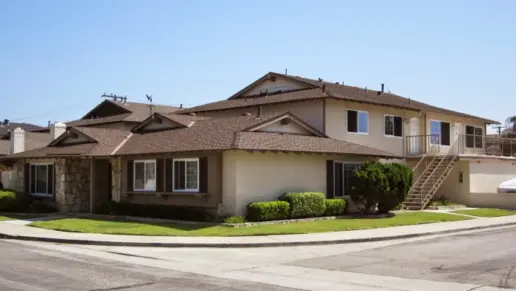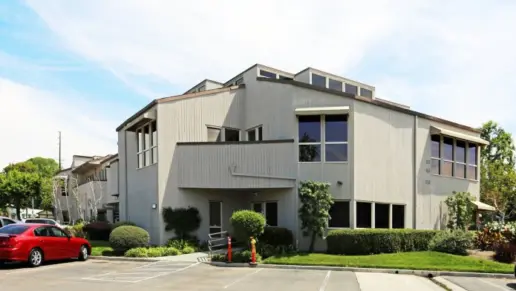About PsyCare Associates
LifeStance Health, formerly PsyCare Associates, is an outpatient mental and behavioral health care facility for youth and adults in San Diego, California. They offer telehealth care, medical and mental health assessments, personalized care planning, and general outpatient (OP) treatment, including dedicated services for children, adolescents, young adults, seniors, trauma survivors, couples, families, and persons with co-occurring addiction and mental illness.
LifeStance Health, formerly PsyCare Associates, provides outpatient mental health care and addiction recovery services for youth and adults in San Diego, California, including telehealth care and general outpatient (OP) programming. Specialized services are available for children, adolescents, young adults, trauma survivors, couples, families, and persons with co-occurring addiction and mental illness. They accept private insurance and self-pay.
Clients receive medical and mental health assessments and personalized care planning. They also engage in intensive individual, group, and family counseling drawing on proven psychotherapeutic modalities, including CBT. Recovery-focused, age and gender-specific life skills training is also emphasized and may address topics such as coping, emotional regulation, resilience, anger and stress management, and relapse prevention. EMDR therapy is available for trauma survivors.
Their aftercare services ensure a complete continuum of care aligned with clients’ evolving needs and may include referrals for further medical, mental health, and social service programs.
Latest Reviews
Location
Location
Accepted Insurance
Other Forms of Payment
Private insurance refers to any kind of healthcare coverage that isn't from the state or federal government. This includes individual and family plans offered by an employer or purchased from the Insurance Marketplace. Every plan will have different requirements and out of pocket costs so be sure to get the full details before you start treatment.
Self-pay involves paying for treatment out of your own pocket. You can use savings or credit, get a personal loan, or receive help from family and friends to fund your treatment. If you don't have insurance or your insurance plan doesn't cover a specific program, self-pay can help ensure you still get the care you need.
Medicare is a federal program that provides health insurance for those 65 and older. It also serves people under 65 with chronic and disabling health challenges. To use Medicare for addiction treatment you need to find a program that accepts Medicare and is in network with your plan. Out of pocket costs and preauthorization requirements vary, so always check with your provider.
Military members, veterans, and eligible dependents have access to specific insurance programs that help them get the care they need. TRICARE and VA insurance can help you access low cost or no cost addiction and mental health treatment. Programs that accept military insurance often have targeted treatment focused on the unique challenges military members, veterans, and their families face.
Addiction Treatments
Levels of Care
Treatments
Mental health rehabs focus on helping individuals recover from mental illnesses like bipolar disorder, clinical depression, anxiety disorders, schizophrenia, and more. Mental health professionals at these facilities are trained to understand and treat mental health issues, both in individual and group settings.
Programs








Clinical Services
Cognitive Behavioral Therapy (CBT) is a therapy modality that focuses on the relationship between one's thoughts, feelings, and behaviors. It is used to establish and allow for healthy responses to thoughts and feelings (instead of unhealthy responses, like using drugs or alcohol). CBT has been proven effective for recovering addicts of all kinds, and is used to strengthen a patient's own self-awareness and ability to self-regulate. CBT allows individuals to monitor their own emotional state, become more adept at communicating with others, and manage stress without needing to engage in substance abuse.
While participating in dialectical behavior therapy in California, you'll focus on four key areas of skill development: mindfulness, interpersonal effectiveness, emotion regulation, and distress tolerance. Treatment includes weekly individual and group sessions.
Group therapy is any therapeutic work that happens in a group (not one-on-one). There are a number of different group therapy modalities, including support groups, experiential therapy, psycho-education, and more. Group therapy involves treatment as well as processing interaction between group members.
In individual therapy, a patient meets one-on-one with a trained psychologist or counselor. Therapy is a pivotal part of effective substance abuse treatment, as it often covers root causes of addiction, including challenges faced by the patient in their social, family, and work/school life.
Research clearly demonstrates that recovery is far more successful and sustainable when loved ones like family members participate in rehab and substance abuse treatment. Genetic factors may be at play when it comes to drug and alcohol addiction, as well as mental health issues. Family dynamics often play a critical role in addiction triggers, and if properly educated, family members can be a strong source of support when it comes to rehabilitation.
Contact Information
4550 Kearny Villa Road
Suite 102
San Diego, CA 92123



